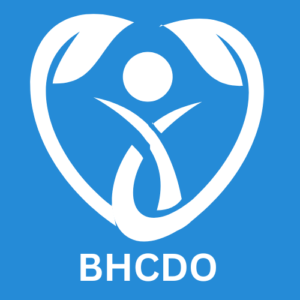Better Hope Community Development Organization (BHCDO) places a strong emphasis on education as a fundamental tool for empowering individuals and communities. In Somalia, where many regions face instability, conflict, and displacement, access to quality education is limited. BHCDO’s education programs aim to bridge this gap by providing vulnerable children, especially those in displacement-affected areas, with the resources and opportunities they need to succeed. The organization also supports adult education, particularly for women, to improve their employment prospects and economic independence.
BHCDO’s education initiatives are part of a holistic approach that links education with broader development goals such as economic empowerment, health, and social inclusion. By integrating education with its other programs, such as livelihoods and health, BHCDO ensures that children and adults have the support they need to thrive both in school and in their wider communities.
For example, BHCDO’s school feeding programs are designed to address the issue of malnutrition, which can affect children’s ability to learn. By providing meals at school, the organization not only ensures that children are well-nourished but also encourages higher school attendance. Similarly, BHCDO’s vocational training programs for youth are linked to its education efforts, ensuring that young people have pathways to employment after completing their studies.
In Somalia, access to education is often hindered by various factors, including poverty, displacement, and gender inequality. BHCDO addresses these barriers by working with local communities to identify and remove obstacles to education. This includes raising awareness about the importance of education, particularly for girls, and advocating for gender equality in schools. By engaging community leaders, parents, and local governments, BHCDO helps to create an environment where all children—regardless of their background—can access quality education.
Additionally, the organization works to ensure that schools are safe and inclusive spaces for all students. In regions affected by conflict or violence, BHCDO collaborates with local authorities to enhance the security of schools, ensuring that children can learn without fear. The organization also supports psychosocial programs within schools to help children cope with trauma and stress, further enabling them to focus on their education.
The impact of BHCDO’s education programs extends beyond the classroom. For many children, particularly those in displacement-affected areas, access to education represents hope for a better future. By providing the opportunity to learn, BHCDO helps children build the skills and knowledge they need to break the cycle of poverty and contribute meaningfully to their communities.
For adults, especially women, literacy and numeracy programs offer a second chance at education. This empowerment allows women to take on new roles within their families and communities, leading to greater economic independence and social mobility. By focusing on both children and adults, BHCDO’s education programs create ripple effects that benefit entire communities.
In particular, the focus on teacher training and capacity building ensures that the quality of education is continuously improving, even in resource-limited settings. Teachers who are better trained can offer more effective instruction, which leads to better student outcomes. This creates a sustainable model for education development, where local teachers and schools are empowered to improve their own practices and ensure lasting change.
BHCDO’s education programs are laying the foundation for a more educated and resilient generation in Somalia. As schools are rehabilitated, teachers trained, and children provided with the necessary resources, the long-term impact on the community will be significant. Education is not only a tool for individual empowerment but also a catalyst for broader social and economic development.
By continuing to invest in education, BHCDO aims to create a future where all children, regardless of their circumstances, have the opportunity to achieve their full potential. The organization’s commitment to both formal education and adult literacy ensures that everyone—young and old—can benefit from the power of learning.
In summary, BHCDO’s education initiatives aim to improve access to quality education, empower teachers, and provide vital resources to vulnerable communities. By focusing on both children and adults, the organization ensures that education serves as a tool for empowerment, resilience, and community development.

Better Hope Community Development Organization is dedicated to transforming lives and building resilient communities across Somalia. Our mission is to provide sustainable and comprehensive solutions in various critical areas to improve the well-being and future prospects of the Somali people.
+252-614883858
info@betterhopecommunitydevelopment.org
Baidoa, Southwest State Somalia
BHCDO© 2024, All Rights Reserved